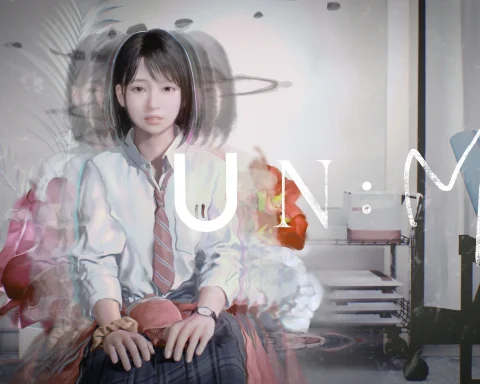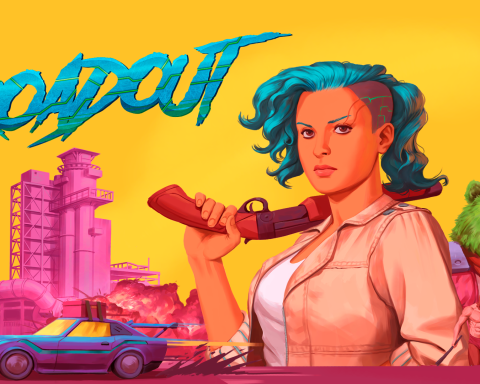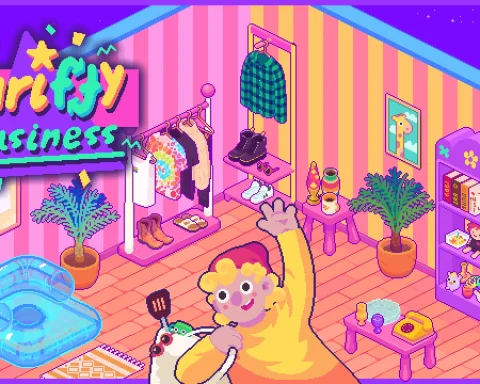 Opinion by Matt S.
Opinion by Matt S.
It’s nothing new that games and sex have been a controversial mix when it comes to the games industry. From the earliest days of Leisure Suit Larry, the mere suggestion of sexual activity within a game has been enough to court the ire of both the community and the censors or classification boards of various markets.
It says a lot, I think, when the biggest controversy over a GTA game was a hidden and only-available-through-hack sex minigame, rather than the extreme and constant violence (which was certainly controversial, but not enough to threaten the game with a ban, as happened when people found out about Hot Coffee in Australia).
That was a few years ago now, so let’s fast forward to today. Over the course of the last generation we’ve seen some spectacular attempts at self-censorship by developers and publishers to take a preemptive strike against any and all potential source of criticism where sexualised content is concerned.
Let’s take a quick look at some examples:
- Fire Emblem: Awakening. You wouldn’t think that a swimsuit on an adult woman would be offensive, but Nintendo apparently did, and edited a still image of one of the characters to conceal the fact that she was wearing a bikini bottom. While there’s a certain argument that could be made that the male gaze makes this specific image an instance of exploitation, and is therefore offensive to some, it’s certainly not grounds to censor it, and nor should any classification board hit it with a higher age rating.
- Bravely Default: Flying Fairy. This one was quite recent, and I covered its censorship in a previous opinion piece. As with Fire Emblem, this game ran into some self-censorship issues because Square Enix decided that the eyes of western audiences couldn’t handle the sight of a minimalist bikini, or a costume made out of belts. These costumes were certainly sexy (or would be if the characters weren’t ridiculously out of proportion and thus abstracted and unrealistic), but enough to censor the game, especially when doing so made the context of the narrative itself confusing? It battles the mind.
- Mugen Souls. This one is perhaps the most understandable, from a regulation point of view. In the
Japanese version of this game there’s a minigame that involves washing various female characters, and those characters appear quite young. It’s not quite as nasty as it sounds, but precisely because it does sound nasty, NISA and Idea Factory decided to go for some self censorship rather than risk the game being banned. And as a consequence the game sold horribly, because NISA and Idea Factory annoyed the people that actually wanted to buy the game by trying to appease those that didn’t.
- Dead or Alive. In perhaps the most petty example of self censorship to date, the Dead or Alive games are now masking the age of certain characters in order to avoid people associating them with being underaged. Not that this was a major job by Tecmo Koei, it was simply a case of replacing the bio line of a character like Kasumi from “Age: 17” to “Age: ????”. This doesn’t impact on the game in any way, and I guess if it avoids controversy then it’s a smart move, but it does represent how over-sensitive publishers need to be with regards to the slightest hint of a potential sex theme.
- Monster Monpiece. The latest example of self-censorship, Monster Monpiece is an incredibly niche game with certain imagery that certain people may well be offended by. But these people would never have bought the game, which is why it’s baffling that Idea Factory would risk drawing the ire of the people that would be interested in the game in order to ward off controversy among non-customers. This all sound eerily like what happened to Mugen Souls, though I certainly hope not because censorship aside the game is a worthy purchase indeed.
 Never mind that there’s an equally strong argument that can be made that Senran Kagura Burst is ironic and self-deprecating, as much of Japanese otaku artwork is, and therefore actually critical of exploitation. No, because there’s flesh and “sexiness”, a writer for a major games publication has pulled the trigger and thrown together an ignorant rant based on the most flimsy of arguments. With complete moral righteousness that can only be done justice by “think of the children” memes, this blogger has again cheapened the discussion about games and sex to the primitive “sex content is bad” argument, and in turn done is own philosophy a great injustice. If this writer genuinely cared about feminist concerns and the games industry, cheapening the discussion with moral outrage isn’t going to achieve anything positive in the discussion of games and art.
Never mind that there’s an equally strong argument that can be made that Senran Kagura Burst is ironic and self-deprecating, as much of Japanese otaku artwork is, and therefore actually critical of exploitation. No, because there’s flesh and “sexiness”, a writer for a major games publication has pulled the trigger and thrown together an ignorant rant based on the most flimsy of arguments. With complete moral righteousness that can only be done justice by “think of the children” memes, this blogger has again cheapened the discussion about games and sex to the primitive “sex content is bad” argument, and in turn done is own philosophy a great injustice. If this writer genuinely cared about feminist concerns and the games industry, cheapening the discussion with moral outrage isn’t going to achieve anything positive in the discussion of games and art.
Until the standard of discussion around sex themes in games improves, we can’t possibly hope for publishers to take a balanced approach to self censorship. They are always going to err on the side of extreme caution, because the reputational damage that the reactionary press can do to these developers cannot be underestimated.
– Matt S.
Editor-in-Chief
Find me on Twitter: @digtiallydownld







